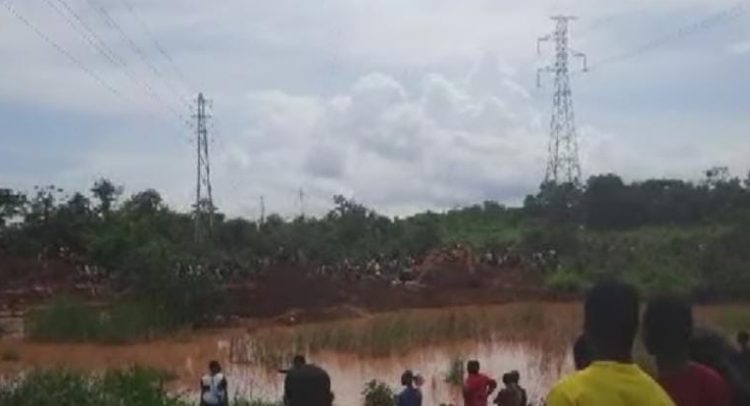It is a somber day in the Ashanti Region as the bodies of two male adults were recovered from an illegal mining pit in Odumase near Konongo, according to information available to DGN Online.
Initial reports had suggested that three illegal miners were trapped in the pit, but fortunately, one managed to make it out safely while the other two lost their lives in the incident.
The National Disaster Management Organization (NADMO) officials in the Municipality have confirmed that the pit caved in while the illegal miners were inside, searching for gold deposits.
This unfortunate event highlights the dangers and hazards associated with illegal mining activities.
To retrieve the bodies, NADMO officers had to call on an experienced excavator operator and local community members.
With their combined efforts and expertise, the bodies were recovered from the mining pit.
The operation was challenging due to the unstable conditions of the pit and the need for caution to avoid further incidents.
Jones Osei Asamoah, the Asante Akim Central Municipal NADMO Director, expressed his condolences to the families of the deceased and assured them that necessary actions would be taken.
He stated that the bodies have been transferred to the morgue for further examination and identification.
Illegal mining, commonly known as “galamsey,” has been a persistent issue in Ghana, causing environmental degradation and posing risks to the lives of individuals involved.
The government has been making efforts to combat this menace and enforce regulations to protect both the environment and the people.
Authorities are urging community members to refrain from engaging in illegal mining activities and to report any suspicious mining operations to the appropriate authorities. They are also calling for greater public awareness regarding the dangers and consequences of illegal mining.
As investigations unfold, it is hoped that this tragedy will serve as a reminder of the perils associated with illegal mining, prompting stricter enforcement of regulations and increased efforts to curb such activities in the region.
By Vincent Kubi


